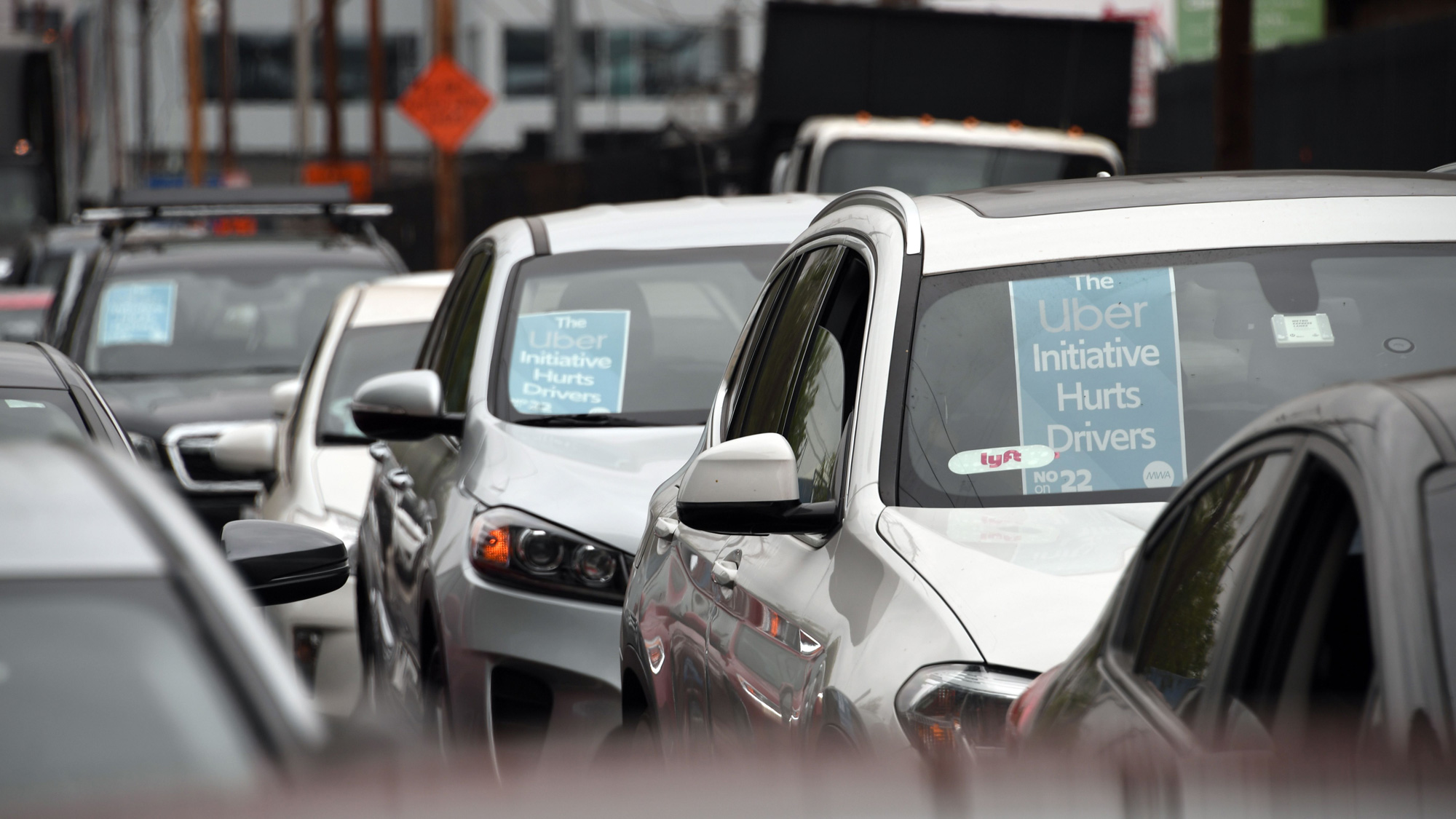Uber And Lyft Have Mastered The Art Of Getting The Government To Pay Their Tab
We may receive a commission on purchases made from links.
It must be nice to run a ride-sharing company, totally absolved of responsibility to support your employees — I'm sorry, independent contractors — during global economic strife. You don't have to give them a minimum wage, or healthcare or paid sick leave. And when they've got nothing coming in, they can just go to the federal government for financial stability. Which, unsurprisingly, is exactly what tens of thousands of Uber and Lyft drivers have had to do during the COVID-19 pandemic, according to a story from the Washington Post.
The U.S. Small Business Association has paid out at least $80 million in Economic Injury Disaster Loans to Uber and Lyft drivers to date. Gig workers' status as independent contractors allowed them to qualify for EIDL programs, so the tech companies could have their cake and eat it, too. Here's how that's broken down over the past year:
The more than 4,000 Uber and Lyft drivers who received the EIDL loans each collected an average of around $15,000, according to The Post's analysis. Those who turned to the EIDL advance — a much larger pool totaling more than 23,000 drivers — received around $1,100 on average, though the median figures for both programs skewed lower as more drivers collected amounts on the lower ends of the distribution.
The response to the Post from representatives at both ride-sharing companies is yet more of the same posturing we've seen before, where we're told drivers actually prefer an employment status that entitles them to less. "Like so many Americans, they deserve relief," Lyft spokeswoman Julie Wood is quoted in a statement. What a noble stance.
Lyft spokeswoman Julie Wood pointed to arguments that drivers prefer the independent contract model that enabled them to qualify for government assistance.
"The vast majority of people who drive for Lyft do so part-time to earn extra money and have other jobs — 96 percent of drivers work or are students in addition to driving — and, like so many Americans, they deserve relief from the government to help with the broad economic impacts of the pandemic," she said.
The other issue here is that while gig workers do qualify for EIDL programs — a Small Business Association spokeswoman clarified to the Post that it covers "emergency working capital needs for all eligible entities, including independent contractors such as Uber and Lyft drivers" — many workers were still unsure whether their status granted them access to those funds.
A frequently asked questions document published by the SBA lists "independent contractors" in addition to "businesses with 500 or fewer employees" and "faith-based organizations" as covered entities, for example. But it doesn't specifically define gig workers, or those driving for ride-sharing companies.
Uber and Lyft have dedicated sites and blogs explaining how workers can get their government-issued loans, because of course they do. Both companies' stock prices have only risen since 2021 began, and both still expect to be profitable this year. Food delivery has helped them weather dropping ridership. They'll be just fine. They were always going to be fine, because they never had to foot the bill.
Big tech — from those ride-sharing services to the likes of DoorDash and Instacart — has arranged a cushy scenario where it can continually rake in cash while telling the very people who make its fortunes to knock on the government's door for help. And after dumping hundreds of millions of dollars into a successful campaign to curtail workers' fundamental wellbeing in California, these companies are now seeking to expand Prop 22's meaningless "engaged time" provisions from coast to coast. Kind of makes you wonder if there will ever be a day when they don't get every single thing they want, while their workers fight for scraps.
